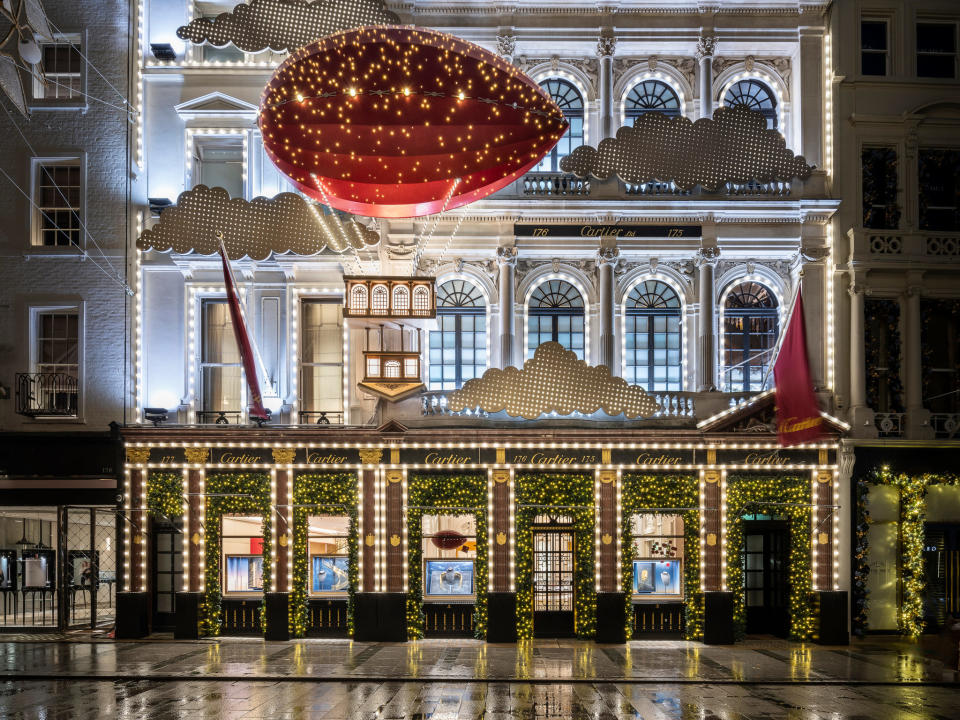HSBC, Jefferies Tell Investors ‘Don’t Get Too Excited Yet’ About Luxury Rebound

LONDON — HSBC and Jefferies remain bearish on luxury stocks despite a rebound in prices this year and fighting talk from company chiefs, notably Bernard Arnault.
HSBC argued in a report on Monday that despite the sector’s recovery over the past five weeks, it’s “not a good time” for investors to chase luxury stocks just yet.
More from WWD
The bank said the absence of a strong Chinese rebound “makes us nervous, and we are not picking up any green shoots there at present.” The bank added that it sees “little incentive” for luxury earnings upgrades in the short term.
Until it starts to see a big, positive macroeconomic swing, such as “a fix for real estate headaches in China,” HSBC said its stance on the sector overall remains neutral.
“We’re happy to be on the sidelines. We see little incentive for earnings upgrades in the short term,” the bank said.
Bernstein’s Luca Solca is sticking to his original outlook for 2024, and believes the fundamental question is how much slower consumer demand will be over the next 10 months.
He said Bernstein has taken note of “faster moderating European domestic consumers.”
Solca added that while Chinese consumers have come back, it’s with less “of an overwhelming gusto than if they’d behaved like American and European consumers” in the second half of 2021 and in 2022, when lockdown was lifted in the West.
In its latest report, Jefferies urged investors to view the luxury shares rebound with caution. It argued that “few indications are emerging” of a potential shift in Chinese travel from Asian countries, back to European ones.
The bank also pointed to weak U.S. department store sales in January, and its own U.S. footfall luxury index, which indicated that the number of visits to luxury stores fell “by a sharp double-digit rate year-over-year” in the first six weeks of 2024.
Jefferies added that the “broader demand context” does not look especially inspiring, despite the rebound in luxury share prices since Jan. 1.
Compagnie Financière Richemont shares are up by 27 percent; Moncler Group by 20 percent; LVMH Moët Hennessy Louis Vuitton by more than 16 percent, and Kering, by 6 percent.
Shares in Burberry, which issued a profit warning earlier this year and is undergoing a period of transition, are down by around 10 percent since Jan. 1.

The analysts’ caution runs contrary to the optimism of the big company chiefs, many of whom have been talking up the industry’s prospects for 2024.
No one has been more bullish than Arnault, chief executive officer of LVMH. “Personally, I’m very confident,” Arnault said after his company reported record 2023 results and a 9 percent uptick in fourth-quarter organic sales in the key fashion and leather goods division.
“We’re going to start to see the impact of future interest rate cuts, and I also expect a positive impact on the U.S. economy from the upcoming [presidential] election. Each time there’s an election in the U.S., the market is more dynamic,” Arnault added.
A few weeks earlier, Richemont’s chief financial officer Burkhart Grund said Cartier’s SoHo New York store was a top performer in the third fiscal quarter ended Dec. 31, and argued that the U.S. consumer “is healthy, and there’s a feel-good factor” in the region.
He added Richemont has seen a “sequential acceleration” in North American demand over the past year, and is feeling a “subdued optimism” about 2024 overall.
Whether or not they’ve gone on the record, it’s clear that many big brands are bullish about what the next 10 months could bring, and are snapping up prime real estate as fast as they can.
In a report published Monday, Bernstein’s Solca said top luxury brands have “highjacked luxury streets and facades, pop-up stores have multiplied, itinerant events have reached unprecedented magnitude. Top luxury groups are opening up a new retail competition front, buying real estate freehold to secure landmark locations.”
Solca said the price of prime locations on top luxury streets — such as Fifth Avenue in Manhattan; via Montenapoleone in Milan; Bond Street in London; Canton Road in Hong Kong, and Avenue Montaigne in Paris — have reached “exorbitant” highs.
Second-tier brands, he added, are struggling to stay on these streets as their retail space productivity is “hardly enough to pay for ever-increasing rental costs.”
Solca wrote that LVMH is “forcing competitors that want to try and play in the same league to stretch their finances,” suggesting that companies such as Kering and Prada are likely feeling the squeeze on their cash flow in an ongoing “David and Goliath” battle.
Best of WWD

